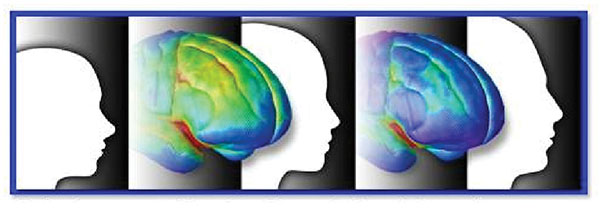Effects of Binge Drinking on the Developing Brain
Search
Alcohol and Cannabis Use and the Developing Brain
Introduction
Adolescence is marked by significant social, emotional, cognitive, and physical changes, as individuals transition from childhood to adulthood. Although the exact definition of adolescence tends to vary, recent findings regarding adolescent development and growth include individuals between the ages of 10 and 24.1 Consistent with this defined age range, the human brain continues to...
NIH’s Adolescent Brain Cognitive Development Study (ABCD Study)

Adolescence is the stage of life during which most people begin using alcohol, and it is also a time of considerable social, psychological, and physiological change. The brain, particularly the frontal cortex, continues to develop throughout adolescence and does not fully mature until early adulthood. Adolescent alcohol exposure can impair brain development, compromise short- and long-term...
Binge Drinking’s Effects on the Developing Brain—Animal Models
Adolescence typically is a time of experimentation and emulation of adult behaviors, and many adolescents initiate alcohol and other drug (AOD) use during this developmental period. Brain development continues during adolescence, which could render the adolescent brain particularly vulnerable to alcohol’s effects. Consequently, adolescent alcohol exposure could result in long-lasting changes in...
Brain Structure and Function in Recovery
Alcohol Use Disorder and Traumatic Brain Injury
Alcohol and the Adolescent Brain: What We’ve Learned and Where the Data Are Taking Us
Introduction
The past 50 years of research supported by the National Institute on Alcohol Abuse and Alcoholism (NIAAA) have resulted in an accumulation of invaluable data to address the multifaceted problems surrounding underage drinking. Youth use of alcohol remains a pervasive social and public health concern in the United States and a leading cause of disability and mortality during...
Alcohol and Puberty: Mechanisms of Delayed Development
Epigenetic Control of Gene Expression in the Alcoholic Brain
Whether a specific gene is transcribed or repressed is determined by the specific status (i.e., conformational state) of the complex of chromosomal DNA and proteins (i.e., the chromatin) and by the recruitment of specific proteins (i.e., transcription factors) to regulatory sites on the DNA (Copeland et al. 2010). Chromatin states can change as a result of enzyme-mediated covalent modifications of...
Genes Contributing to the Development of Alcoholism: An Overview
A major goal of genetic research into alcoholism and related traits is to better understand the biology underlying this disease by identifying specific genes in which variations contribute to a person’s risk of developing the disease and then examining the pathways through which these genes and their variants affect the disease. Researchers hope to use this knowledge to develop new, more effective...

